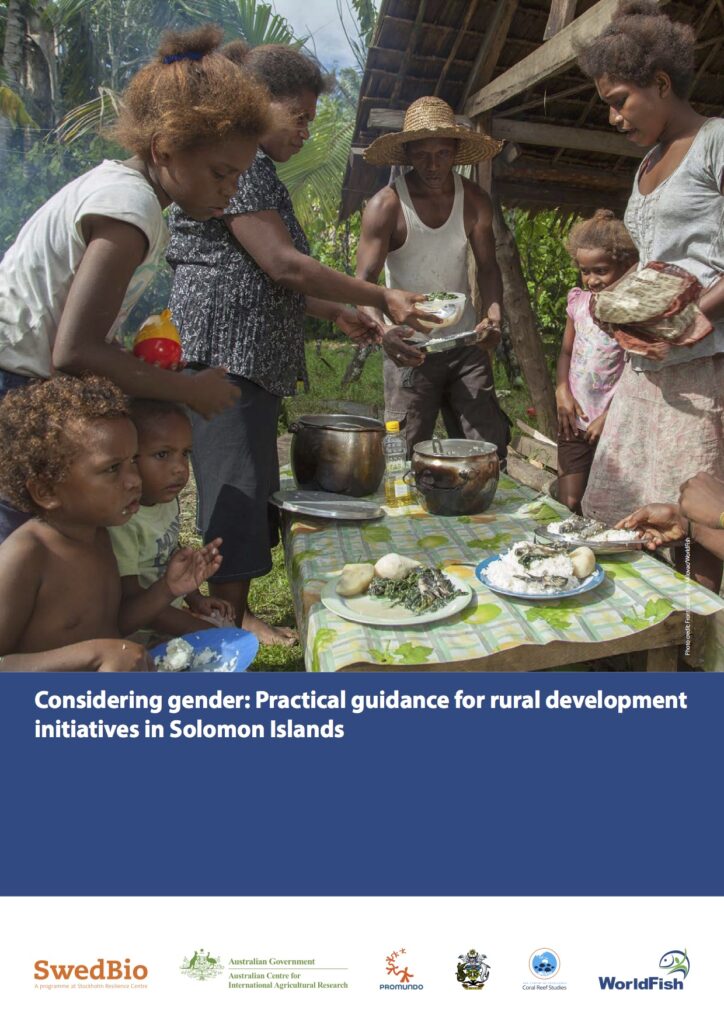The majority of Solomon Islanders live in rural communities and are dependent on natural resources for their livelihoods. For many people, ways of generating income or producing food outside of small-scale fishing and agriculture are limited. Many development actors (e.g. government agencies and nongovernmental organizations) work with people in rural communities to develop and improve livelihoods, food security and environmental sustainability. However, development initiatives are often challenged to improve the lives of all people due to the presence of gender inequalities, which limit the abilities of certain individuals, mainly women, to participate in and benefit from development opportunities.
This program brief highlights and summarizes the findings and knowledge sharing of two workshops between 2015 and 2016 with representatives from national and provincial governments, and nongovernmental organizations of Solomon Islands. Combining these insights and findings from a WorldFish study helps formulate the gender-transformative approach where development actors and communities closely work together to identify, examine, question and attempt to shift, in locally appropriate ways, harmful or inequitable gender norms and power imbalances between women and men.
Resources
English
Considering Gender: Practical guidance for rural development initiatives in Solomon Islands
PDF Preview